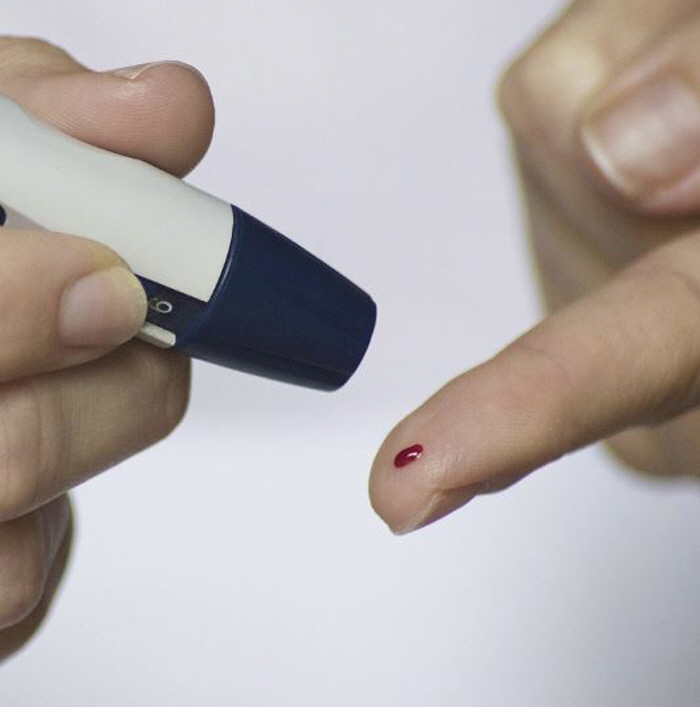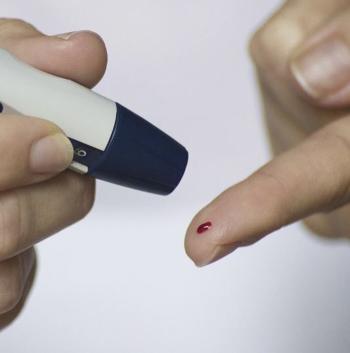Deterioration of consciousness and difficulty breathing when hyperglycemia persists?We need to deal with suspected shock symptoms at Himchan Hospital immediately
Nov 16, 2025
|
This increasing trend is particularly noticeable in low- and middle-income countries.
Korea is no exception.
According to 'Diabetes Fact Sheet 2024' published by the Korean Diabetes Association, the prevalence of diabetes among adults over 30 years of age is 14.8% as of 2022, which is about 5.33 million people. The pre-diabetes level also amounts to about 14 million people.
By age, the number of male diabetic patients in their 50s was the highest at 30.1%, and the number of elderly diabetic patients was the highest at 41.2%.
◇ High blood sugar with blood sugar of 180mg/㎗ or more, fatigue, frequent urination
If your blood sugar is more than 200mg/㎗, your fasting blood sugar is more than 126mg/㎗, your blood sugar is more than 200mg/㎗, and your glycated hemoglobin level is more than 6.5%.
Hyperglycemia occurs when blood sugar continues to rise above 180mg/㎗, and it absorbs water from the body from the blood vessels and gradually begins to drain the sugar into the urine. At this time, abnormal symptoms such as fatigue, frequent urine, extreme hunger, dry skin and mouth, and blurred vision occur. When blood sugar levels exceed 300mg/㎗, consciousness decreases and changes such as dehydration, lethargy, shortness of breath, and coma occur.
If hyperglycemia continues above 250 mg/㎗, an acute complication called diabetic ketoacidosis can occur.
Kim Yu-mi, head of the endocrine department at Himchan General Hospital in Incheon, explained, `Because blood sugar is not used as energy, ketonic acid is harmful to the body while using fat as energy, and critical symptoms such as nausea, vomiting, abdominal pain, diarrhea, and shortness of breath occur, causing shock.' If hyperglycemia persists for more than two weeks, dehydration can lead to organ function deterioration, electrolyte imbalance, and cardiac arrest. In the case of elderly diabetic patients, if blood sugar rises to the limit and exceeds 500mg/㎗, a fatal complication of hyperosmotic hyperglycemia may occur.
◇A family history increases the risk of developing diabetes by two to three times...'Young patients' on the rise
Type 2 diabetes, which accounts for more than 90% of diabetes, is closely linked to lifestyle and eating habits.
Obesity, lack of exercise, westernized eating habits, smoking, and lack of sleep are cited as major risk factors.
If you have a diabetic patient among your parents or siblings, the risk of developing the disease is two to three times higher.
Therefore, people with genetic predisposition may develop the disease faster even with the same lifestyle.
Recently, the number of young diabetic patients is also increasing.
Diabetes in young people requires more attention because the severity of diagnosis is higher and the risk of complications is higher than that of middle-aged people.
Also "No way am I?The ease of " and "Shouldn't I take medicine for the rest of my life?", "Because of my friend and co-worker's self-consciousness..." There are many cases of delaying or stopping treatment for reasons such as etc. For this reason, it is also common to grow diseases.
◇ Improve eating habits and exercise regularly...We need to deal with complications
Type 2 diabetes is highly likely to be prevented by improving appropriate lifestyle.
First of all, it is to maintain a healthy diet. Reduce excessive sugar, simple carbohydrates (refined white bread, sugar drinks, etc.) and increase whole grains, vegetables, fruits, and legumes rich in dietary fiber.
Instead of reducing the intake of saturated and trans fats, you should increase the intake of unsaturated fats (olive oil, perilla oil, nuts).
Regular physical activity is also necessary.
At least 150 minutes of moderate exercise per week (fast walking, cycling) is recommended. Combining strength training also helps improve insulin sensitivity.
In addition, it is important to maintain an appropriate weight and control abdominal obesity, especially.
Lack of sleep can worsen insulin resistance, so try to get a good night's sleep.
Smoking and abstaining are also necessary.
If there is a risk of diabetes, blood sugar, glycated hemoglobin (HbA1c), fasting blood sugar, etc. are regularly examined.
Kim Yu-mi, head of the endocrine department at Himchan General Hospital in Incheon, said "Diabetes should manage blood sugar control and prevention of complications"Especially if you have suspected symptoms of shock caused by diabetes, you should be prepared to respond immediately."," he said.
This article was translated by Naver AI translator.














